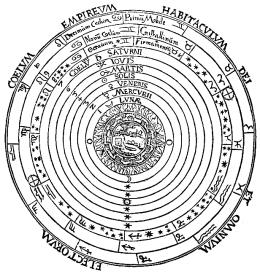 Many silly things have been written and said about this book, mostly by people who haven’t read it. Too bad, it’s a very short and easy read...
Many silly things have been written and said about this book, mostly by people who haven’t read it. Too bad, it’s a very short and easy read...
The central claim of the book, the one on which the marketing campaign has been centered, is that God is not necessary in order to explain the universe. That’s nothing new: when Napoleon asked Laplace about two hundred years ago why he wasn’t mentioning the Creator in his work, he famously answered:
“I had no need of that hypothesis”
In 1670, Spinoza also hypothesized that the world could be understood without God having to play any role in it.
Hawking’s claims are not very different. Never in the book does he say that there is no god. This hasn’t stopped most clueless commenters to assume that he did but he simply did not. Concluding that God exists or not is left as an exercise to the reader. The shrinking relevance of the concept is of course nothing new, it has been going on for centuries but the erosion has never seemed to be an obstacle to the true believer.
To be fair, there are jabs at religion in the book (which is not the same as jabs at God), such as this one:
“In 1277 Bishop Templier of Paris, on the instructions of Pope John XXI, published a list of 219 errors or heresies that were to be condemned. Among the heresies was the idea that nature follows laws, because this conflicts with God’s omnipotence. Interestingly, Pope John was killed by the effects of the law of gravity a few months later when the roof of his palace fell in on him.”
What Hawking does claim is that the relatively recent discovery that the total energy of the universe is zero, coupled with the existence of a law such as gravitation, are enough to explain the creation of our universe. There is actually not much here that isn’t already familiar to people who have been following the progress of physics.
Many commenters have pointed out that he doesn’t explain why there is a law of gravitation. Well, they either haven’t read the book or haven’t been paying attention. He does give an explanation, which is that a quantum cosmological model such as the one from superstring theory he’s using, has to include all possible physical laws. Still, I would agree with those commenters that he’s not going deeply enough to explain the origin of physical laws. That doesn’t mean that there are no naturalistic explanations, just that the book does not provide a fully satisfactory one. In that way the central claim of the book is a little overblown as it really only pushes God into a smaller gap.
Hawking in general does not enter into too many details and that would be my main grief against the book. There is a lot of hand-waving going on, which too bad as the science behind what he’s saying is worth explaining. Because he doesn’t explain, many readers may think he’s just making things up.
There is an insistence in the book on adopting what the authors call model-dependent realism, which is a philosophical parti-pris that because all we know of reality is through our sensations, we cannot have tests of reality that are completely independent of the models we build to account for observation. This is actually not very controversial but it has already been misinterpreted by the likes of Deepack Chopra as validation of their own crazy ideas that the mind was somehow creating reality. Hawking could have been more precise: he could have predicted that pitfall and avoided it by clearly stating what he was not saying.
I’ve been focusing in this review on the negatives (oh, did I mention the lame attempts at humor that could have been entirely avoided?). Still, I recommend the book as the positives vastly outweigh my nitpicking. It is a good and pleasant read. It does present solid arguments (although they could be supported by more actual scientific contents) and does push back the role of God in creation. It is also a good introductory text for those who want to understand the current state of cosmology. A modern and honest person should read it, if only in order to be able to speak of it intelligently.